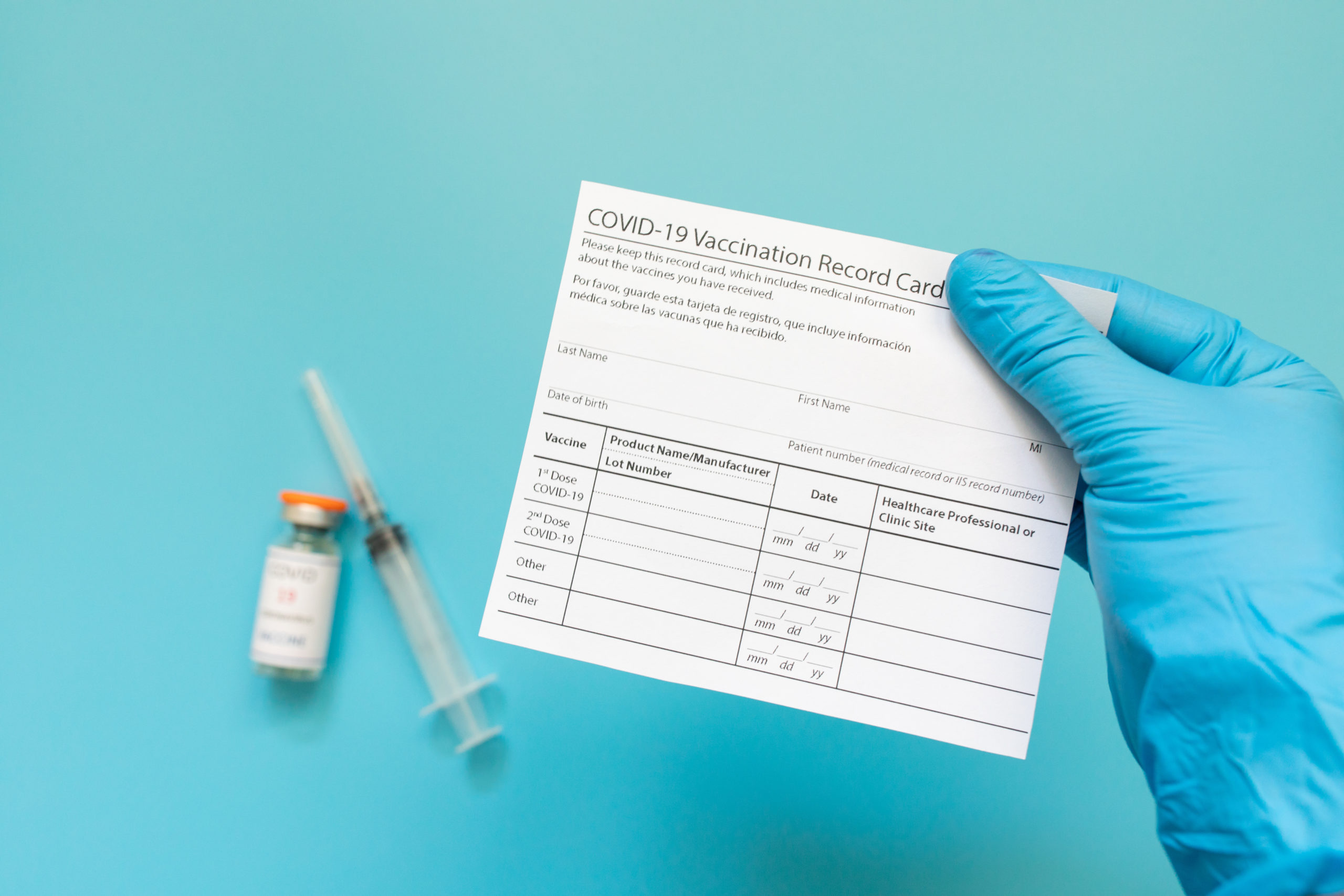 Is that little card with your vaccine info on it worth keeping? Here’s what you need to know.
Is that little card with your vaccine info on it worth keeping? Here’s what you need to know.
When you get a COVID-19 vaccination, you’ll get a 4-by-3-inch paper card that includes details of your vaccine on it – the date you received each dose and where, as well as the vaccine manufacturer. But what should you do with that card?
There’s lots of contradicting information out there about what to do with those paper cards. Here are answers to some of the most common questions about vaccine cards.
What should you do (and not do) with the card you get at the vaccination site?
Hang on to that card because, for now, it’s the main form of proof that you’ve been vaccinated. Store the original someplace secure at home. Make a few printed copies and/or snap a photo of the card. If you can’t keep a photo of the card on your phone, keep a printed copy (not the original) in your wallet in case you need to show it. When you see your doctor, bring your card with you so your COVID-19 vaccine information can be noted in your permanent health record.
What you should not do is post a photo of your vaccine card on social media. Your card contains personal details, such as your name and birthdate, that could put you at risk for identity theft. If you want to share news that you got your shot, cover the personal information on your card. Better yet, snap a selfie wearing your “I’m vaccinated!” sticker.
You also shouldn’t laminate your card, although you may have heard otherwise. You might need to record info about a booster shot at a later date. Also, laminating machines have a heat element that can cause the ink to smudge. If you want to protect the card from spills, stains and rips, store it in a plastic sleeve, like an ID badge holder.
Why do you need to hold onto your vaccine card?
Many health and government officials suggest we may need to start showing proof we were vaccinated for certain things. They’re still developing a system for how this will happen, but it could involve showing our vaccine card as proof. You’ll also need access to your card if and when we’re advised to get booster shots. The card lists the dates of your shots and the manufacturer name (Pfizer, Moderna, J&J) so you’ll know which vaccine you already received.
What if you lose your vaccine card?
One protection is to make printed copies and/or take a photo of the card so you have a copy if you lose the original. If you misplace the original and want another, check with the place you received your vaccine. They should have your vaccine information stored and may issue you another card. An electronic record should also be filed with the state where you received the vaccine. If you provided your doctor with proof of vaccination, it will be stored in your patient record and they can provide the information you need as well.
Will we need to show proof of vaccination for travel, school, work or public events?
It’s possible that we’ll need to show proof of vaccination for international travel and also for entrance to public places like sports stadiums, concert halls, public transportation, workplaces and schools. For example, many colleges and universities in the U.S. have already announced vaccine requirements for students beginning in fall 2021, with more added to the list every day. Until regulations are set, check before you go somewhere to see if you’ll be required to show any documentation.
Will we receive some type of government-issued vaccination proof in the future?
Maybe, but it won’t be happening anytime soon. Within the U.S., the federal government is leaving it up to individual states to decide what will be required and when. Some states, like Florida, have announced they are banning businesses from asking for vaccine proof. Other states are still developing their programs. There’s also talk of some type of vaccine passport being developed for international travel. Officials working on the issue are encountering a number of obstacles, including trying to find a fraud-proof system that works for everyone. For now, the best plan is to take good care of the card you get when you’re vaccinated in case you need it.
Copyright 2021 © Baldwin Publishing, Inc. All rights reserved.
Health eCooking® is a registered trademark of Baldwin Publishing, Inc. Cook eKitchen™ is a designated trademark of Baldwin Publishing, Inc. Any duplication or distribution of the information contained herein without the express approval of Baldwin Publishing, Inc. is strictly prohibited.
Date Last Reviewed: May 12, 2021
Editorial Review: Andrea Cohen, Editorial Director, Baldwin Publishing, Inc. Contact Editor
Medical Review: Perry Pitkow, MD
Learn more about Baldwin Publishing Inc. editorial policy, privacy policy, ADA compliance and sponsorship policy.
No information provided by Baldwin Publishing, Inc. in any article is a substitute for medical advice or treatment for any medical condition. Baldwin Publishing, Inc. strongly suggests that you use this information in consultation with your doctor or other health professional. Use or viewing of any Baldwin Publishing, Inc. article signifies your understanding and agreement to the disclaimer and acceptance of these terms of use.